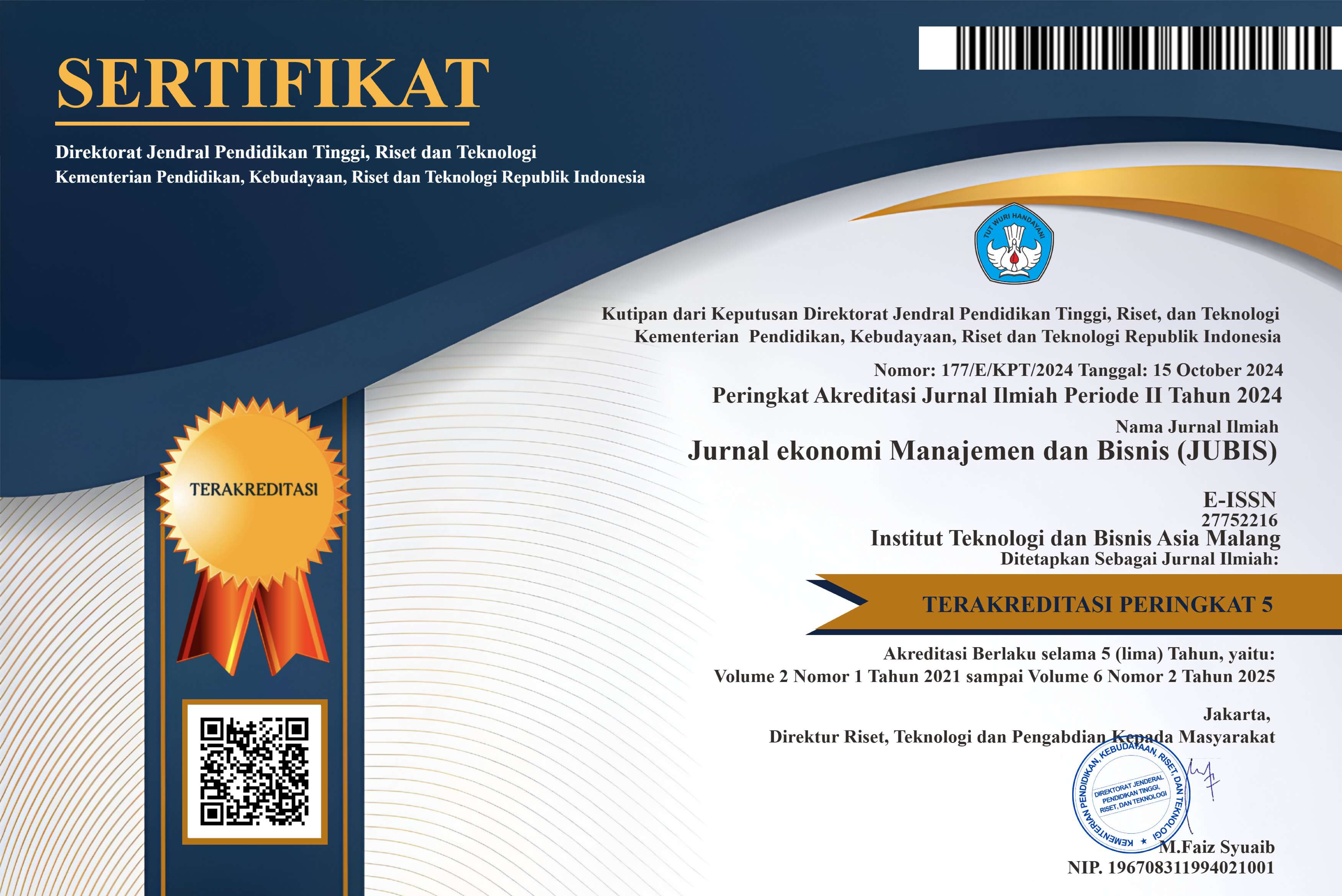PENGARUH KETERIKATAN KARYAWAN, GAYA KEPEMIMPINAN SITUASIONAL, DAN BUDAYA ORGANISASI TERHADAP KINERJA KARYAWAN MELALUI KEPUASAN KERJA SEBAGAI VARIABEL INTERVENING
DOI:
https://doi.org/10.32815/jubis.v3i2.1525Keywords:
employee engagement, leadership style, organizational culture, employee performance, work satisfactionAbstract
The purpose of this study was to determine the effect of employee engagement, situational leadership style, and organizational culture on employee performance through job satisfaction as an intervening variable for employees of the PPA Cluster Sintang, West Kalimantan. The population in this study were employees of the PPA Cluster Sintang. Determination of the number of samples using the Slovin formula, so the number of samples in this study were 60 respondents from 70 employees. Sampling using non-probability sampling technique using purposive sampling technique. The technique of collecting data was carried out using a questionnaire distributed by google form. The results showed that employee engagement had a significant positive effect on job satisfaction, situational leadership style had a significant positive effect on job satisfaction, organizational culture had a significant positive effect on job satisfaction, job satisfaction had a significant positive effect on employee performance, employee engagement had a significant positive effect on employee performance, style situational leadership has a significant positive effect on employee performance, organizational culture has a significant positive effect on employee performance and employee engagement, situational leadership style, and organizational culture have a significant effect on employee performance through employee job satisfaction PPA Sintang Cluster West Kalimantan.


 jubis@asia.ac.id
jubis@asia.ac.id +62 899-3995-948
+62 899-3995-948



